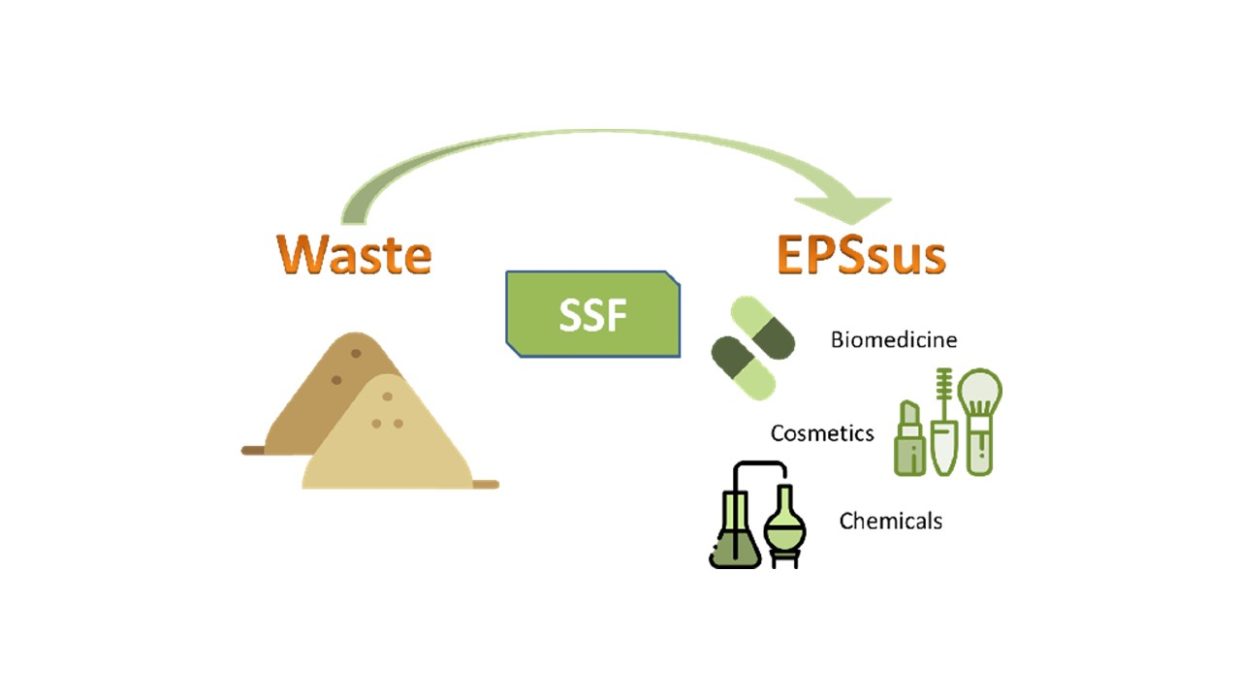EPSsus
Sustainable bio-based polymers from waste

-
Grant agreement ID: 2019 LLAV 00014
-
Total project budget: 20.000,00 €
-
Start Date: 23/07/2020
End Date: 22/04/2021
Project Summary:
The increased demand for natural polymers in medical, pharmaceutical, food, and other industrial applications has served as one of the driving forces for the growing development of bio-based materials. Among them, Exopolysaccharides (EPSs) are gaining relevance due to their interesting physicochemical properties, and its non-toxic and biodegradable nature. EPSs are biologically produced polymeric materials, extracellularly secreted by some fungi and bacteria. Nowadays, most of the marketable EPSs are produced using submerged fermentation systems (SmF) with bacteria. However, the fermentation media, that can represent almost 30% of the fermentation cost, are composed of expensive synthetic nutrients such as yeast extract, peptone, and salts. EPSsus project proposes the use of the solid-state fermentation technology (SSF) as a potentially more economical alternative to obtaining EPSs within the biorefinery concept. SSF possesses the inherent ability of processing no-cost solid organic wastes of diverse origin. This scenario presents an alternative to exploiting the inherent characteristics of SSF systems to obtain these value-added products in a scheme based on the use of residues.
Our role in the project:
EPSsus is fully executed by BETA Technological Center, and it is expected to generate a strong base of knowledge that could serve for future developments of the proposed technology. This would constitute the first step, and therefore, the main outcome will be a validated technology at lab-scale. In the long-term, it is expected to obtain a process that would constitute an improvement of the existing solutions for obtaining polysaccharides. Thus, the main expected outcome is a bio-based product able to substitute some of the natural extracted and those petroleum-derived polysaccharides used in the industry. Thus, the impact of these solutions on society would cover from the creation of new markets and job positions to the potential reduction of the solid residue treatment cost and the reduction of the dependence on petroleum-based polysaccharides.
Project funded by the European Union through the European Regional Development Fund (FEDER)
![]()
![]()
